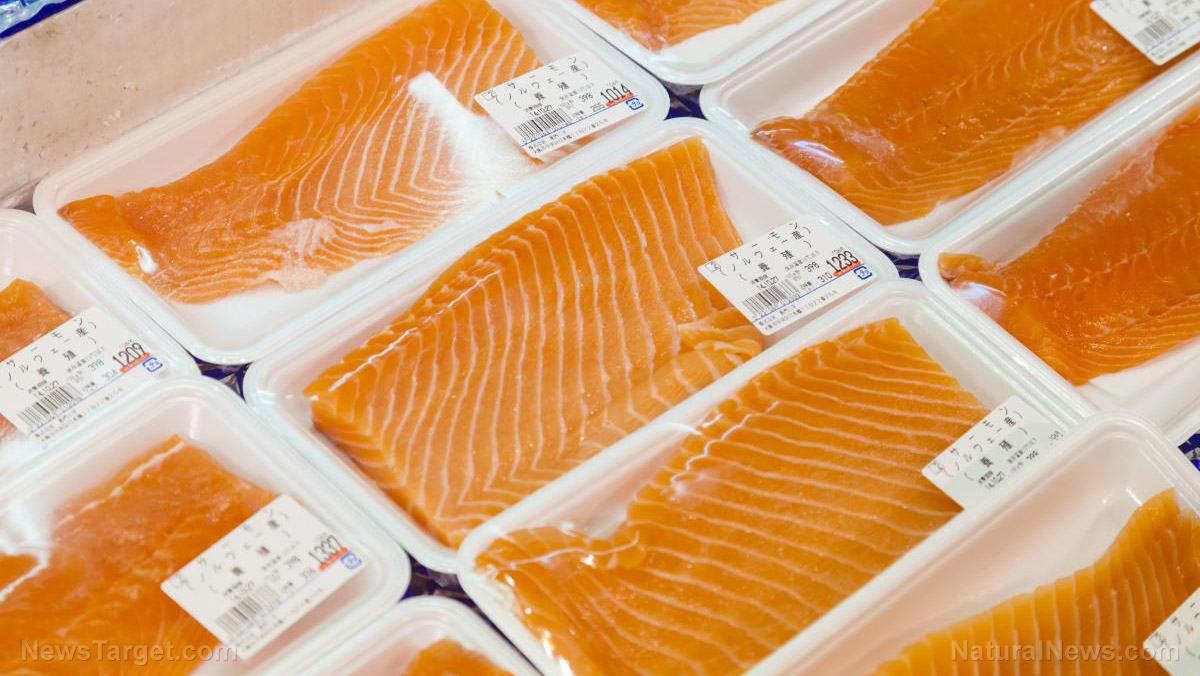Britain is running short of tea due to supply chain disruptions caused by Red Sea Houthi attacks
02/18/2024 / By Belle Carter

Houthis of Yemen have been hijacking commercial ships that are Israeli- and United States-owned in the Red Sea, attacking them with drones, missiles and speed boats as a response to the war in the Gaza Strip. Due to this, some vessels have started taking longer routes to avoid the attacks and this move has sent prices skyrocketing.
Now, the United Kingdom is being hit by a potential shortage of the nation’s favorite brew because of this. The British Retail Consortium (BRC) said it had seen “temporary disruption” to some black tea lines, and an industry source said there had been some delays to flavored lines. The tea aisle in the markets can be seen half empty.
BRC spokesperson Tom Holder said that the Red Sea attacks had led to some delays, but that he did not expect them to last long. “It is a blip,” he said, adding that he expected companies to adjust their orders to account for the lengthened shipping times. He said shortages had probably been exacerbated by people panic-buying tea, somewhat like the toilet paper shortages at the start of the Wuhan coronavirus (COVID-19) pandemic in 2020.
A Sainsbury’s in Manchester had a notice that read: “We are experiencing supply issues affecting the nationwide supply of black tea. We apologize for any inconvenience and hope to be back in full supply soon.” More warnings are in place in stores across the United Kingdom. Sainsbury’s executives reassured customers that any shortages were only temporary and that the impact on consumers was expected to be “minimal.”
Top black tea brands have almost gone out of stock. Yorkshire Tea and Tetley Tea, two of the most popular tea companies in Britain, said in statements that they were monitoring the situation to ensure they could maintain supplies of black tea, but that orders were being fulfilled. “This is a critical period which requires our constant attention,” Tetley said in a statement. It said that it had implemented measures in recent months to mitigate any disruption to supplies because of shipping issues. Non-black teas such as Twining’s Lemon Green Tea and Peppermint are currently unaffected.
According to observers, in a nation where people are morning-and-night tea drinkers, the imminent shortage is already causing a stir. Britons drink about 100 million cups of tea each day, according to the U.K. Tea and Infusions Association. The largest share of tea imports to Britain from outside the European Union comes from sub-Saharan Africa, followed by Asia and Oceania, according to Statista, a market research provider. “If an actual shortage of tea hit? In my office, it would be outrage,” Eirann Carney, 23 years old, a shopper in London, said. “Honestly I think people would not go in.”
Food shortages have been haunting the U.K. since the Ukraine-Russia war erupted
The impending tea shortage is not the first since conflicts all around the world have started. It came after widespread egg shortages across the country last year. This was blamed on a bird flu outbreak and rising costs for feed and energy. The outbreak of the Russia-Ukraine war also affected the supplies as the region is a major producer of wheat which is a main ingredient of chicken feed. All major British supermarkets imposed a limit of a maximum of two or three boxes of eggs per customer as many shoppers faced empty shelves.
According to reports, tea drinkers from Britain have so far largely avoided tea shortages in the past. But Twinings already reported suffering “challenges” with sourcing its lapsang souchong blend last April which led to it being replaced with an imitation that angered some fans.
Last summer, Tetley also narrowly avoided a tea shortage crisis after workers in the GMB Union accepted a new pay deal that called off planned strike action for 200 workers at Tata Consumer Products Limited in Teesside, the only producer of Tetley tea bags for the U.K. and Canada.
But as the Houthi rebels continue the attacks, it may not only be tea, which is largely produced in Asia and East Africa, that would go out of stock or come with high price tags. It would not be a surprise that other raw materials or by-products imported from the said regions are the same. This is unless the freight and shipping companies also become creative in how they sail in the Red Sea to dodge any danger of the rebel attacks. (Related: Commercial ships in Red Sea get creative to avoid being targeted by Houthi rebels, announcing things like, “All Crew Muslims.”)
Head over to SupplyChainWarning.com to read more stories about shortages and disruptions of food supply.
Sources for this article include:
Submit a correction >>
Tagged Under:
attacks, black tea, British Retail Consortium, bubble, commercial vessels, disruption, food collapse, food inflation, food supply, freight shipments, Gaza, groceries, grocery, hijacking, hot drinks, Houthi, inventory, Israel-Palestine war, Middle East, panic, rationing, Red Sea, rerouting, Sainsbury's, scarcity, shortage, supermarkets, supply chain, tea, terrorism, UK, violence
This article may contain statements that reflect the opinion of the author
RECENT NEWS & ARTICLES
COPYRIGHT © 2017 GROCERY NEWS




















